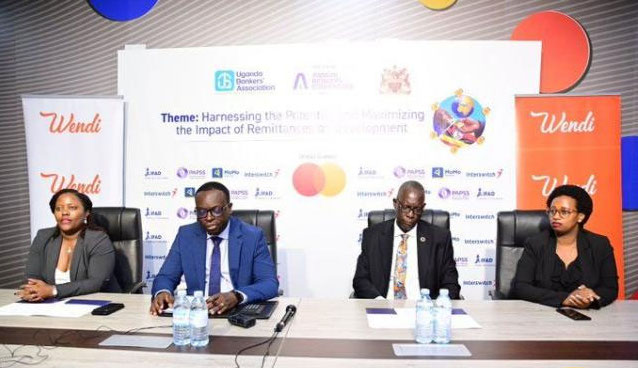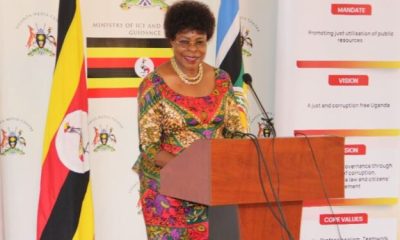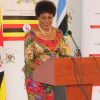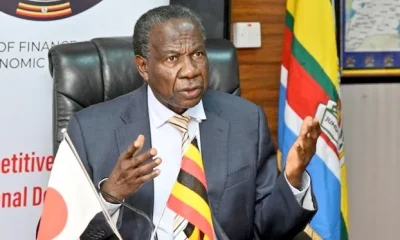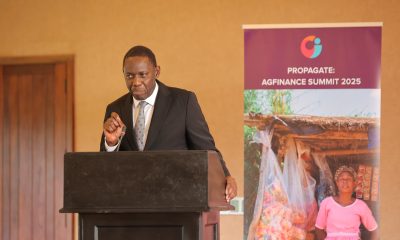Economy
Diaspora Remittances Overtake Tourism and Coffee as Uganda Eyes $14 Billion Opportunity
Remittance inflows from Ugandans living and working abroad have surged to an all-time high of $1.4 billion (UGX 5 trillion), surpassing earnings from tourism and coffee to become one of the country’s leading sources of foreign exchange. Despite this milestone, experts believe Uganda is only scratching the surface of its potential, with projections estimating the figure could grow tenfold to $14 billion over the next 15 years.
The figures were revealed ahead of the 8th Annual Bankers Conference, slated for July 29 in Kampala, which will focus on the theme: “Harnessing the Potential and Maximising the Impact of Remittances on Development.”
Organized by the Uganda Bankers’ Association (UBA) in collaboration with the Bank of Uganda, the International Fund for Agricultural Development (IFAD), and Mastercard as the title sponsor, the high-level conference will bring together key stakeholders across government, the financial sector, and civil society to chart a transformative path for diaspora remittances in Uganda’s development agenda.
“Remittances are not just transfers of money; they are powerful drivers of development,” said Julius Kakeeto, UBA Chairperson. “They directly impact the lives of millions of Ugandans, alleviating poverty, enhancing access to healthcare and education, and contributing significantly to the national economy.”
Currently accounting for around 3% of Uganda’s GDP, diaspora remittances have outpaced both foreign direct investment (FDI) and official development assistance (ODA), marking them as a vital lifeline for low-income families and a strategic financial lever for national growth.
While Uganda’s remittance inflow is commendable, it still lags behind regional leaders. Egypt leads Africa with $24.2 billion, followed by Nigeria ($20.5 billion) and Morocco ($12.1 billion). In East Africa, Kenya tops the list with $4.4 billion in annual remittances.
“Uganda has a diaspora population of over 2 million, many of whom are labour migrants, particularly in the Middle East,” said Wilbrod Owor, UBA Executive Director. “With more than 110,000 Ugandans leaving the country annually for work, especially to Asia and the Gulf region, the remittance ecosystem is expanding and evolving rapidly.”
Owor explained that the remittance behaviour differs by region, with frequent but smaller transfers from the Middle East and fewer but larger remittances from countries like the United States, UK, Canada, and Sweden, the latter of which is becoming an increasingly important destination for Ugandan migrants.
The upcoming Bankers Conference will serve as a platform to propose actionable strategies for unlocking the full potential of remittances in supporting Uganda’s $500 billion GDP vision by 2040. Topics will include: The economic role of remittances in poverty alleviation, financial inclusion, and infrastructure development. Leveraging technology and innovation to increase efficiency and security in global money transfers. Mitigating risks such as fraud, currency volatility, and geopolitical shocks. The role of financial institutions, regulators, and policymakers in strengthening remittance frameworks
“Every country must build frameworks to ensure that remittance inflows are safe, transparent, and used for the right purposes,” said Owor.
Shehryar Ali, Senior Vice President and Country Manager for East Africa and Indian Ocean Islands at Mastercard, highlighted the importance of digital transformation in modernising the remittance space.
“We are setting new standards for payment technologies, enabling faster, more secure flows that meet the evolving needs of our customers,” Ali said. “Together, we can unlock the full potential of global money transfers as a catalyst for long-term development and financial inclusion.”
As remittances become increasingly central to Uganda’s economic landscape, industry leaders are urging policy reforms, digital infrastructure, and innovative financial products that empower both the senders and recipients of these funds.
“This is no longer just a diaspora issue, it’s a national development priority,” Kakeeto concluded. “Harnessed correctly, remittances can be Uganda’s launchpad toward inclusive growth and sustainable prosperity.”
Comments



